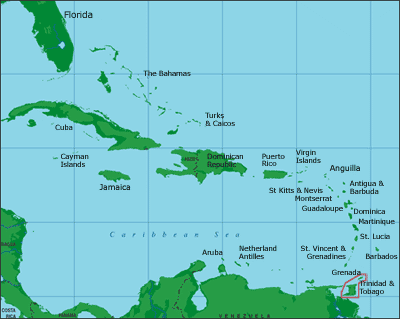- Dettagli
- Categoria: Death Penalty News
- Pubblicato: 10 Gennaio 2014
Opposition leader Dr Hubert Minnis has released a draft Bill which seeks to amend the constitution to cut the London-based Privy Council out of the appeal process in cases where a death sentence has been imposed.
After declaring in his New Years message on Tuesday that immediate steps must be taken to restore the integrity and effectiveness of the country's laws, including capital punishment, Dr Minnis unveiled a Bill for the Constitutional (Amendment) (Capital Offences) Act, 2014.
In the case of murder convictions, the Bill asserts, if the trial judge feels the nature and circumstances "are of such depravity, inhumanity, gravity or severity as to merit the imposition of a sentence of death", and the Court of Appeal agrees, the sentence cannot be appealed "to any other court anywhere else in the world".
The Bill adds that any delay in executing a death sentence caused by the convict's appeal will no longer be grounds for challenging the validity of that sentence.
This aims to overturn the 5 year limit imposed by the Privy Council.
It adds: "The holding of any person who is in a correctional facility or otherwise lawfully detained, prior to, during or after trial, and pending execution of a sentence of death imposed on that person, in conditions which immediately before the coming into operation of this Act were prescribed in the Correctional Facilities Act or the Prisons Act, as then in force; or were otherwise practiced in the Bahamas, shall not be a ground of appeal or of vitiation of such sentence of death."
During his New Years speech, Dr Minnis admitted the bulk of modern research asserts there is no evidence that the death penalty is a deterrent to the would-be murderer.
"That may be so, but what is also clear in our Bahamas is that today there is a hardened criminal element who have nothing but contempt for law, order, or human suffering, and for whom there is no respect for human life even the lives of innocent by-standers, and children," he said.
"At the very least, there should be the certainty of sure punishment, and punishment which is appropriate to the crimes committed. Our policy is not based upon any concept of deterrence; it is based on the right of national self-defence.
"The wave of gang and drug-related murders is a matter which threatens not only the wellbeing of every citizen and every community, it also threatens the fundamental integrity of the state. It threatens the way of life of every law abiding Bahamian. It threatens national security. Violent gun crimes and rampant murders must be tackled on that basis," the FNM leader said.
Dr Minnis said his Bill was designed to address several procedural weaknesses which have caused the Privy Council to overturn capital sentences for convicted murderers in the past; and to strengthen and to enhance the integrity and effectiveness of the trial process in serious gun-related and murder cases.
He said the stipulation that a death sentence appeal can only be made to the Bahamas Court of Appeal, and nowhere else, is a reflection of the FNM's considered view that "in so serious a question as the sentence for a convicted murderer, a determination that a crime is 'the worst of the worst' (or any similar legal formulation) should only be made by judges who reside in the Bahamas, and who consequentially have to live every day in the society which they help to shape by their rulings.
"All other appeals such as an appeal against conviction, or an appeal on constitutional grounds will still be able to be made to the Privy Council," Dr Minnis said.
"Under the Bill, the Governor General, acting on the advice of the Minister of National Security, will prescribe time limits for the lodging and conclusion of all appeals against conviction, or constitutional appeals.
"If the same are not concluded within such time limits, the Advisory Committee on the Prerogative of Mercy will be able to advise that the law should be brought into execution," he said.
The Bill would also remove the Constitutional right to trial by jury either at the request of the prosecution or at the request of the accused where there is a charge of having committed murder, manslaughter, or crimes involving the use of firearms to inflict harm or death, and particularly in instances where there is a likelihood of jury or witness tampering or intimidation.
"In such instances the case will be heard by a panel of 2 Supreme Court Judges along with a qualified non-judicial Attorney called an Assessor," Dr Minnis said.
He added: "As this Bill necessarily seeks to affect fundamental rights and freedoms which are presently enshrined and protected in the constitution, it will require the holding of a National Constitutional Referendum.
"My fellow Bahamians, it will be up to each and every one of you to decide whether these proposals become law by way of an amendment of our constitution."
Source: Tribune 242, January 9, 2014
Leggi tutto... http://deathpenaltynews.blogspot.com/2014/01/bahamas-minnis-releases-draft-bill-on.html









